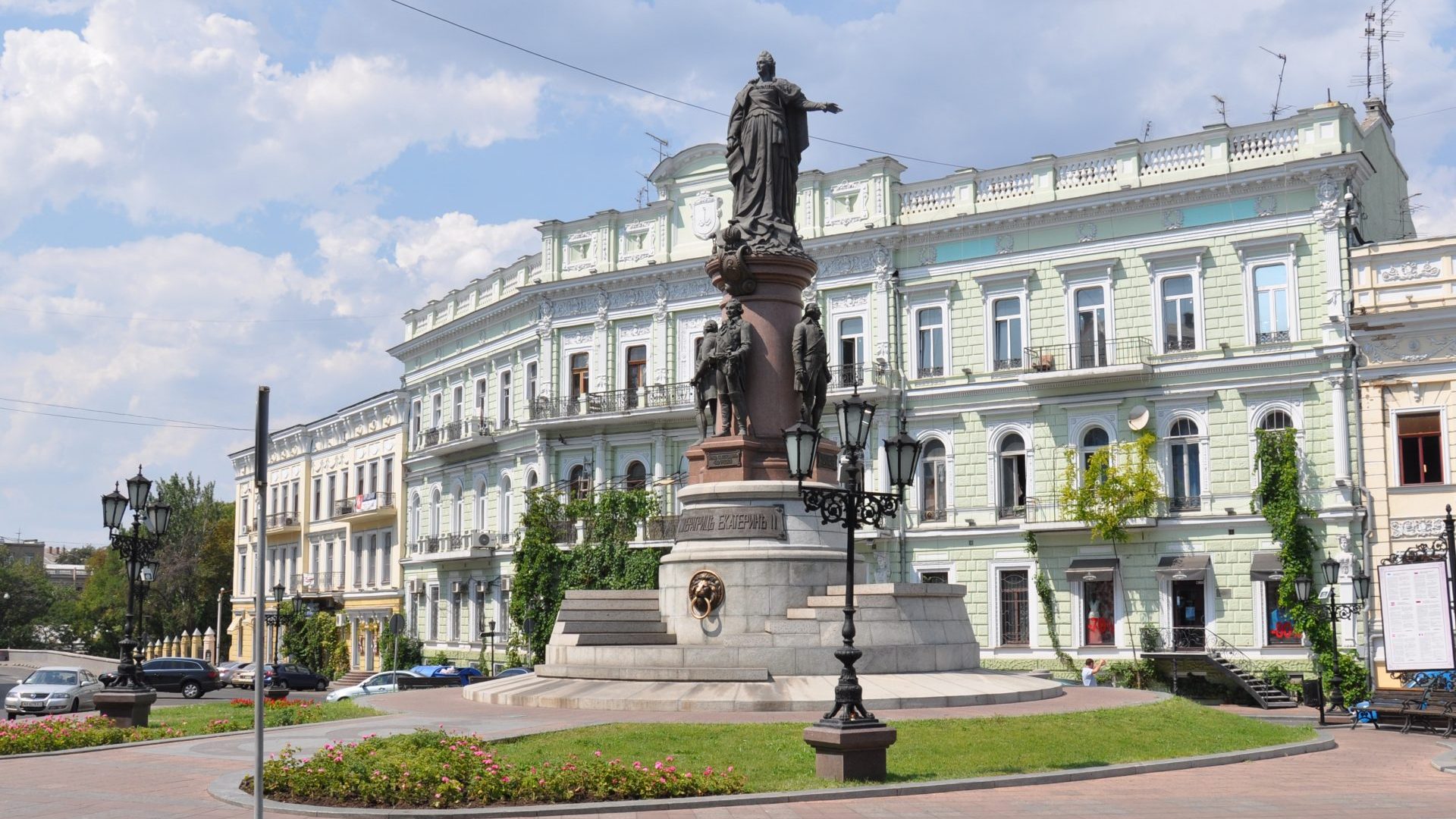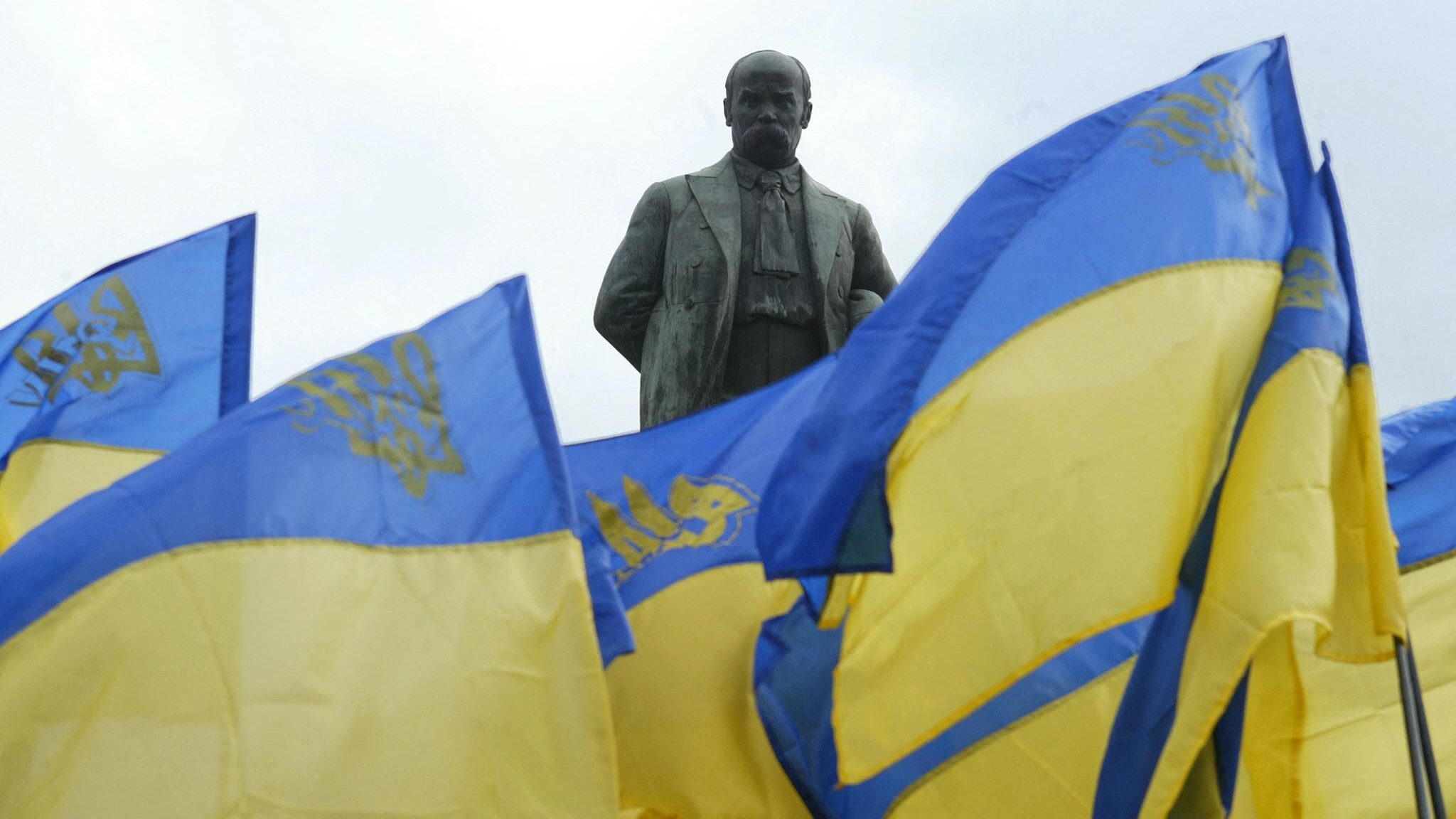Some TNE readers may be familiar, from holidays in Greece, with the place-name Hersónissos (also written Chersónissos and Hersónisos). Hersónissos is a town on the north coast of the island of Crete, about 15 miles east of the biggest Cretan city, Iraklio (Heraklion). The name Hersónissos means “peninsula”.
The Ukrainian city of Khersón (Hersón, Chersón) also has the same name.
It was founded by the Russian Empress Catherine the Great in 1778, and was one of a number of cities established at around that time in “New Russia”, which was the term used by the Russians to refer to the area along the north shore of the Black Sea, which they annexed from the Ottoman Empire in the second half of the 18th century.
Other towns in that region dating from the same period include Mariúpol, Sevastópol (English Sebastopol), Simferópol, Melitópol, Tiráspil (Romanian Tiraspol), and Odésa (English Odessa).
These municipalities today all lie in Ukraine, except for Tiraspol, which is in Moldova, although it has been taken over by the internationally unrecognised pro-Russian Transnistrian Republic.
Sevastópol and Simferópol are both in Crimea, which was invaded and illegally annexed by Russia in 2014, but they continue to be internationally recognised as being in Ukraine.
It is not a coincidence that all these names, like Khersón, are of Greek origin. The -pol ending is derived from the Ancient Greek pólis, Modern Greek póli “city”.
And the name of Odessa was taken from the Ancient Greek settlement of Odessos, which was actually where the modern Bulgarian town of Varna is now situated.
This all had to do with Catherine the Great’s “Greek Project”. She favoured the independence of Greece from the Turks, and planned for the subsequent
three-way partition of the Ottoman Empire between the Russians, the Austrian Habsburg Empire, and a re-established Greek Byzantine Empire (with one of her family governing as Emperor from Constantinople).
Marioúpoli is Greek for “city of Maria”, referring here to the Russian Princess Maria Fyodorovna.
Sevastópol comes from Greek sevastós “venerable”, the Greek equivalent of Latin Augustus.
Simferópol is derived from the Greek simferós “beneficial”.
Greek méli “honey” forms the base of Melitópol. And Tiraspol is from the Ancient Greek name of the River Dnieper: the Tyras.
Ancient Greek-speaking peoples settled all round the Black Sea, and many large communities of Pontic Greeks – the Ancient Greek name for the Black Sea was Pontos – were still living all around the Black Sea in the 20th century on the coasts of Bulgaria, Romania, Ukraine, Russia, Georgia and northern Turkey.
For example, large communities of Greeks, with their own distinctive dialect of Greek, still remain in Mariúpol and the surrounding villages.
On February 26 the Athens newspapers reported that 10 ethnic Greeks in Mariúpol and nearby Sartana had been killed by the Russian bombardment of civilians.
The Greek newspaper Kathimerini released the text of a social media message written by the French President Emmanuel Macron, in Greek, condemning the attack.
Translated, his message read: “It is not just the people of Ukraine who are in mourning today because of the war caused by Russia, but all the people of Europe. Tonight, with grief we think of Greece, which unjustly lost 10 members of its community who lived in the Ukrainian city of Mariúpol”.
MELISSA
The Greek word for honey is méli. Mélissa is Greek for ‘bee’, with the stress on the first syllable, unlike the English girl’s name. The corresponding Latin word for honey is mel. Our word mellifluous originally meant ‘flowing with honey’, and we can still talk about the honeyed tones of a mellifluous voice.




